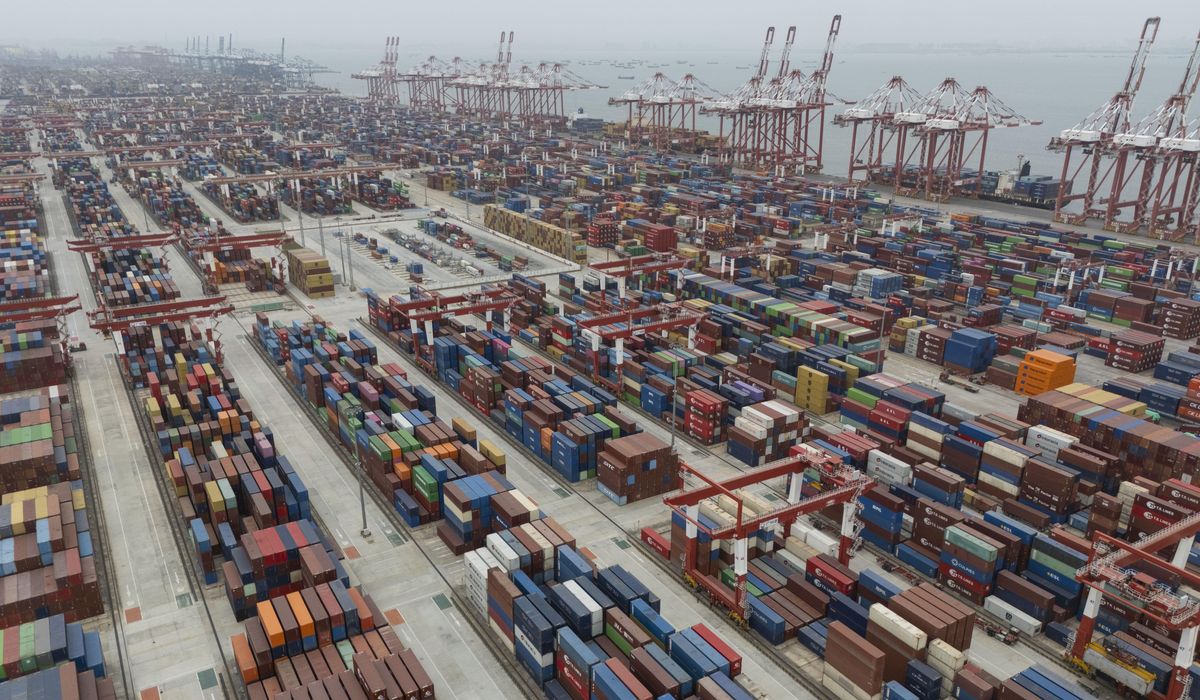


China on Thursday said there haven’t been any trade talks between its side and the U.S., pushing back on comments from the Trump administration that signaled a possible thaw in the trade war.
The foreign ministry in Beijing responded bluntly when asked about reports of talks or an imminent deal: “None of that is true,” ministry spokesman Guo Jiakun said.
“For all I know, China and the U.S. are not having any consultation or negotiation on tariffs, still less reaching a deal,” he said. “China’s position is consistent and clear: We will fight, if fight we must. Our doors are open, if the U.S. wants to talk. Dialogue and negotiation must be based on equality, respect and mutual benefit.”
Wall Street traded in positive territory Thursday despite Beijing’s dismissal, as investors cheered Washington’s softer approach to the trade war overall.
China’s denial of talks belied enthusiasm on the U.S. side. President Trump said Wednesday that “everything’s active” when it comes to making a trade deal with China.
“We are going to have a fair deal with China. It’s going to be fair,” Mr. Trump told reporters Wednesday after walking on the North Lawn of the White House.
The U.S. is imposing a 145% tariff on most Chinese goods, with exceptions for certain electronics.
China slapped a 125% tariff on U.S. goods in retaliation for Mr. Trump’s “Liberation Day” trade plan, which imposed a blanket 10% tariff on all imports and heftier levies on countries that sell plenty of products to American consumers but don’t buy nearly as much from U.S. producers.
Dozens of nations are negotiating over trade barriers, but the U.S. and China are locked in a high-stakes standoff.
The National Retail Federation said retailers had been rushing cargo into U.S. ports to get ahead of tariffs. Now that levies are starting to bite, it expects shipments to drop sharply.
“Potential impacts could include less inventory and fewer choices for consumers as well as increased prices, especially at small retailers,” said Jonathan Gold, vice president of supply chain and customs policy at NRF. “However, the effects will likely become tangible in the coming months as shipments that are subject to the higher tariffs begin to arrive and make their way through retail inventory. The uncertainty around the tariffs is challenging for businesses, especially for small businesses that are currently preparing for critical winter holiday orders.”
Treasury Secretary Scott Bessent said there is a chance for a “big deal” with China if it moves away from its export-heavy economy that floods the world with cheap goods.
The White House said it would be willing to lower tariffs, but only in concert with Beijing as part of negotiations.
China, however, wants the U.S. side to lower its tariffs unilaterally.
“If the U.S. truly wants to resolve the issue, it should heed rational voices from the international community and domestic stakeholders, completely abolish all unilateral tariffs on China, and find a solution through equal dialogue,” Commerce Ministry spokesman He Yadong said.
• Tom Howell Jr. can be reached at thowell@washingtontimes.com.
